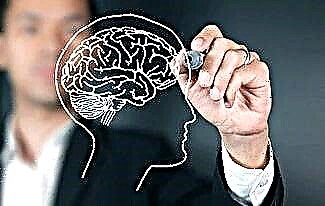What is eugenics and what its purpose is not known to all people. This doctrine appeared in the 19th century, but it gained the greatest popularity in the first decades of the 20th century.
In this article, we will look at what eugenics is and what is its role in human history.

What does eugenics mean
Translated from the ancient Greek word "eugenics" means - "noble" or "good kind." So, eugenics is a teaching about the selection of people, as well as about ways to improve the hereditary properties of a person. The purpose of the teaching is to combat the phenomena of degeneration in the human gene pool.
In simple terms, eugenics was necessary in order to save people from diseases, bad inclinations, criminality, etc., endowing them with useful qualities - genius, developed thinking abilities, health and other similar things.
It is important to note that eugenics is divided into 2 types:
- Positive eugenics. Its goal is to increase the number of people with valuable (useful) traits.
- Negative eugenics. Its task is to destroy people who suffer from mental or physical illnesses, or belong to the "lower" races.
At the beginning of the last century, eugenics was very popular in the United States and various European countries, but with the arrival of the Nazis, this teaching acquired a negative connotation.
As you know, in the Third Reich, the Nazis sterilized, that is, killed, all "inferior persons" - communists, representatives of non-traditional orientations, gypsies, Jews, Slavs and mentally ill people. For this reason, after the Second World War (1939-1945), eugenics was heavily criticized.
Every year there were more and more opponents of eugenics. Scientists have stated that the inheritance of positive and negative traits is very poorly understood. In addition, people with birth defects can have high intelligence and be useful to society.
In 2005, the countries of the European Union signed the Convention on Biomedicine and Human Rights, which prohibits:
- discriminate against people on the basis of genetic heritage;
- modify the human genome;
- create embryos for scientific purposes.
5 years before the signing of the convention, the EU states adopted a charter of rights, which spoke about the prohibition of eugenics. Today, eugenics has transformed to some extent into biomedicine and genetics.









